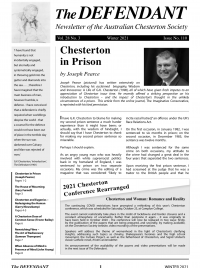

The American essayist Joseph Epstein (pictured) has been previously highlighted in The Defendant (Winter 2020) as a writer of common sense – at a time, as Chesterton thought, when it is ceasing to be common. Trevor Bailey, who serves as a jury court official in the Riverina and publishes occasional verse in Quadrant and other magazines, reviews Epstein’s latest book of essays.
To say that Joseph Epstein sits between G.K Chesterton and Simon Leys is to make a statement that anyone acquainted with my bookshelves would affirm.
But the essays of each author makes clear that a triangular rather than linear relationship best addresses the complementary qualities of these great stylists.
Chesterton, the Briton, was pious, punning, paradoxical, and prolific. Simon Leys (Pierre Ryckmans), the Belgian-Australian, was pious too, but his meditative style reflected his calling as a sinologist: elegant, subtle, ironic, timeless – calligraphy in prose.
Joseph Epstein is an American, a fact pleasantly reflected in his genial ‘chinos and loafers’ literary style which is also quintessentially Jewish, marked throughout by the self- effacing irony of a people whose historical output is almost equal to its history of having been put-upon.
A ‘pious agnostic’, Epstein, like Chesterton and Ryckmans, is dedicated to the search for higher truths in our all-too-brief-existence. He is alive to the suffocating power of cant and its handmaidens, shallow thinking and fashion.
His latest book is called Gallimaufry: A Collection of Essays, Reviews, Bits – the word ‘gallimaufry ‘ meaning in French a jumble or hotchpotch. It is dedicated to those who know, in Chesterton’s words in Tremendous Trifles, that ‘[t]he world will never starve for want of wonders; but only for want of wonder’. So I am reflecting here on Epstein’s ability as an essayist. Here is his definition of the essay (in “Essayism”):
“Randall Jarrell once defined the novel as ‘a long prose fiction with something wrong with it. So might one declare the essay a short prose nonfiction with something occasionally delightful about it? Need more be said about this literary form whose aim is never definitude and whose specialty is specificity?”
In Epstein’s piece “Evelyn Waugh”, there is rich ground for comparing essayists. He concludes that, “after his conversion to Catholicism, Evelyn Waugh found a theme: the emptiness of life without faith.”
Countering the author’s critics, such as Isaiah Berlin, Noël Coward and Edmund Wilson, Epstein says: “… I find Waugh’s delving into questions of faith elevated his fiction. One doesn’t have to be Catholic, or consider conversion to Catholicism, to be interested in the theme of faith – understanding it, finding it, retaining it under difficult conditions.” He goes on to describe “the drama of faith” as going “against the grain of a secular age”, and so transforming Waugh “the brilliant humourist” into “a major writer”.
And here Epstein recognises in Waugh traits taken up by Chesterton generally, and Ryckmans in particular. Writing about Waugh, in “Evelyn Waugh: The Terror of Babel”, Ryckmans argued that the elegant craftsman employed his precision with language, together with the bedrock of his faith, as protection against the chaos wrought by the Modern Age.
Similarly, in “The Menace of Political Correctness”, Epstein examines “the aroma of goose-cooking” in its modern form. The soft totalitarian nature of this fashionable oppression was something Ryckmans was alive to before he died in 2014. He had left the ANU in Canberra in 1993 when he sensed way back then the closing of the academic mind.
Chesterton, a “beer-and-beef” journalist, and a champion of common sense as opposed to the tenured thinker, realised a century ago – according to Dale Ahlquist – the looming tyranny:
“Nobody sees the largest danger of our age: it is too simple. It is simply that the rich are slowly enslaving the poor, partly by industrial despotism, partly by scientific benevolence, partly by State officialism.”
Epstein brings to his essay on this particular curse a flavour of the greatly demented state of the West, with its self- loathing and embrace of illiberalism to an extent that Chesterton had forewarned, and which Ryckmans had experienced in its nascent ferocity.
And here we are, Epstein concludes: “… in the world of the politically correct, where human nature is judged incapable of change, humour is not allowed, any sense of proportion is precluded, and virtue invariably resides with the accuser.”
Gloomy? Fear not; Gallimaufry has throughout its “essays, reviews, bits” more than its share of Chestertonian delights – candid, wise and funny as it is.
